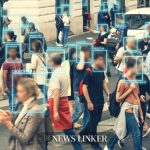Offline AI services, such as PrivateGPT, revolutionize data privacy, allowing sensitive information to be processed purely locally without the need for internet connectivity. This service, designed for those who prioritize confidentiality, particularly in critical sectors like healthcare and legal, provides a secure alternative to conventional AI services that often require external data transmission. This innovative approach promises to keep private data within the user’s control while offering the advanced capabilities of large language models (LLMs).
Data privacy concerns have long been a barrier to adopting AI technologies in industries handling sensitive information. Traditional online AI services, while efficient, pose risks by potentially exposing data to external servers. Over the years, iterations of secure AI solutions have emerged, attempting to strike a balance between utility and data protection. Despite these efforts, a persistent need exists for a system that offers robust AI functionalities without compromising privacy.
What Sets PrivateGPT Apart?
Private GPT distinguishes itself as a completely offline AI service that processes data exclusively on the user’s own hardware. It mirrors the intelligent responses of internet-based LLMs, such as the popular AI chatbots, making it possible to interact with AI systems without risking data privacy. The absence of internet requirements for operation ensures that sensitive information remains exclusively within the user’s environment, making it ideal for industries that manage confidential data.
Can Offline AI Match Online Capabilities?
The functionality of PrivateGPT extends beyond mere privacy. Its features include document ingestion and the ability to generate contextually relevant responses, similar to online AI services. However, its pledge to prioritize user privacy by confining data locally without sacrificing performance is a key innovation. This reflects a growing demand for technology solutions that respect data confidentiality while still harnessing AI’s potential.
How Could Scientific Research Inform This Technology?
In the realm of AI and privacy, scientific research continually informs the development of new technologies. For instance, a study published in the Journal “Nature Machine Intelligence” titled “Robust and Private AI: An Exploration of Local Differential Privacy” delves into the challenges of maintaining data privacy in AI. The paper examines techniques that could enhance the privacy of AI systems, such as differential privacy, which could be relevant to offline AI services like PrivateGPT. By understanding these principles, developers can create AI applications that inherently respect user privacy while still offering advanced analytical capabilities.
Useful Inferences for the Reader
- Offline AI can process sensitive data without internet connectivity.
- PrivateGPT’s document ingestion mimics online AI capabilities securely.
- Local differential privacy principles may underpin offline AI privacy.
The integration of PrivateGPT as an offline, local AI service marks a notable progression in the realm of AI and data confidentiality. It opens avenues for sectors that deal with sensitive information, such as the healthcare and legal industries, to adopt AI without risking data exposure. This development is a testament to the evolving landscape of AI, where the demand for privacy-preserving technologies is being met with innovative solutions tailored to keep data within the user’s control. The future may see a wider adoption of such technologies, potentially changing how sensitive information is processed across various fields.










